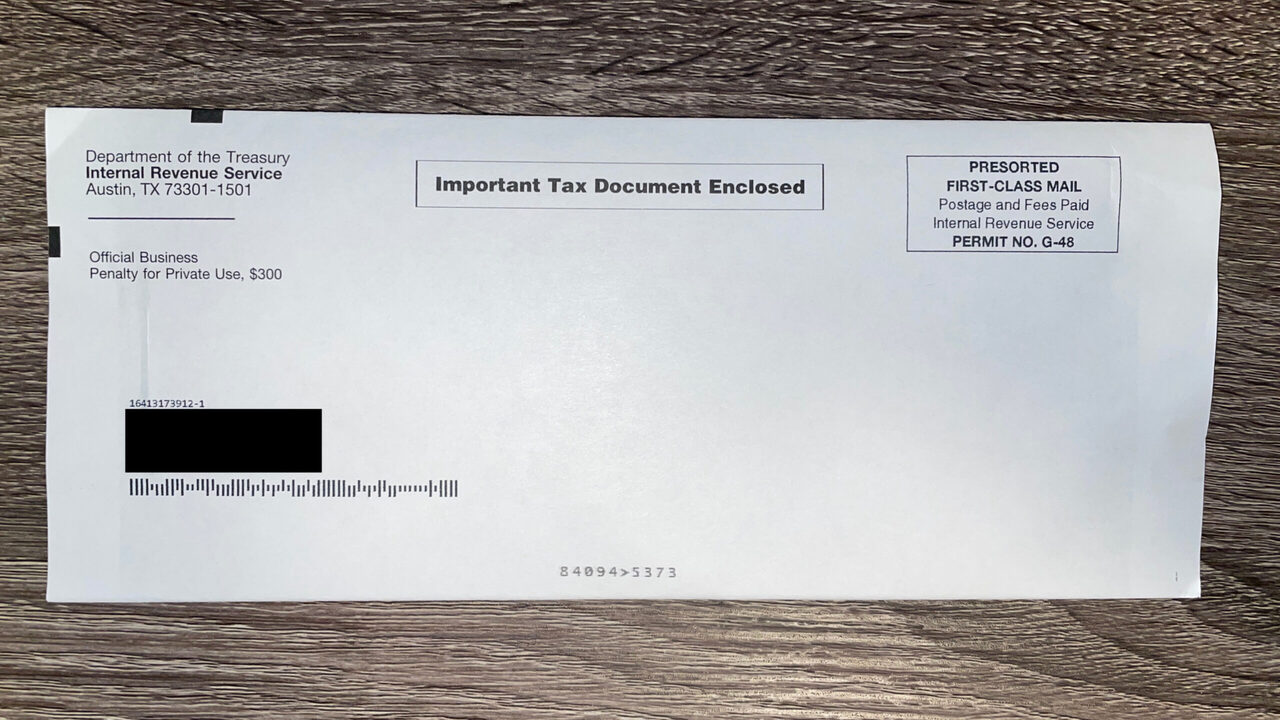Home>Finance>What Does A Utility Company Credit Inquiry Look Like


Finance
What Does A Utility Company Credit Inquiry Look Like
Published: March 5, 2024
Learn what a utility company credit inquiry looks like and its impact on your finances. Understand the implications of utility credit checks.
(Many of the links in this article redirect to a specific reviewed product. Your purchase of these products through affiliate links helps to generate commission for LiveWell, at no extra cost. Learn more)
Table of Contents
Introduction
Welcome to the world of utility company credit inquiries! Have you ever wondered what happens when you apply for a new utility service, such as electricity, water, or internet? You might be surprised to learn that the process involves a credit inquiry, which can have implications for your credit score.
Understanding the intricacies of utility company credit inquiries is essential for anyone who wants to stay informed about their financial well-being. In this comprehensive guide, we'll delve into the details of what utility company credit inquiries entail, what information they include, and how they can impact your credit score. By the end of this article, you'll be equipped with the knowledge to navigate utility company credit inquiries with confidence.
Let's embark on a journey to unravel the mysteries surrounding utility company credit inquiries and gain a deeper understanding of their significance in the realm of personal finance. Whether you're a first-time renter setting up utilities for a new apartment or a homeowner exploring different service providers, this guide will provide valuable insights to help you make informed decisions and manage your credit effectively. So, fasten your seatbelt and get ready to explore the world of utility company credit inquiries!
Understanding Utility Company Credit Inquiries
When you apply for a new utility service, the utility company may conduct a credit inquiry to assess your creditworthiness. This process allows the utility provider to evaluate the potential risk of providing you with their services based on your financial history. Utility company credit inquiries are a standard procedure aimed at ensuring that customers can fulfill their financial obligations related to the utility services they seek.
It’s important to note that utility company credit inquiries are different from traditional credit inquiries conducted by lenders or credit card companies. While traditional credit inquiries are primarily focused on assessing your eligibility for credit products, utility company credit inquiries are specifically tailored to evaluate your ability to manage ongoing utility payments.
Utility company credit inquiries typically involve a review of your credit report to gauge your payment history, outstanding debts, and other relevant financial indicators. This evaluation helps the utility company determine the terms under which they will provide you with their services, such as whether a security deposit is required or if you qualify for specific billing arrangements.
Understanding the nature of utility company credit inquiries empowers consumers to approach the process with clarity and confidence. By recognizing the purpose behind these inquiries, individuals can take proactive steps to maintain a positive credit profile, which can ultimately influence the outcomes of future credit assessments.
As we continue our exploration, we’ll delve deeper into the specific details included in a utility company credit inquiry and explore the potential impact of these inquiries on your credit score. By gaining a comprehensive understanding of utility company credit inquiries, you’ll be better equipped to navigate the complexities of credit assessment processes and make informed financial decisions.
What Information is Included in a Utility Company Credit Inquiry?
When a utility company conducts a credit inquiry, they typically gather specific information from your credit report to assess your creditworthiness in relation to their services. The following key details are commonly included in a utility company credit inquiry:
- Payment History: The utility company examines your track record of making timely payments on credit accounts, loans, and other financial obligations. A history of consistent, on-time payments can reflect positively on your creditworthiness, while late payments or defaults may raise concerns for the utility provider.
- Outstanding Debts: Your current outstanding debts, including credit card balances, loans, and other financial liabilities, are reviewed to gauge your overall debt burden. High levels of debt relative to your income can signal financial strain, potentially impacting the utility company’s assessment.
- Public Records: Utility company credit inquiries may encompass a review of public records, such as bankruptcies, tax liens, and civil judgments. These records provide insights into your financial history and can influence the utility provider’s decision regarding service provision and related terms.
- Credit Utilization: The extent to which you utilize available credit, often expressed as a ratio of your credit card balances to their respective limits, is a crucial factor. High credit utilization can indicate financial stress and may factor into the utility company’s risk assessment.
- Recent Credit Inquiries: The utility company may consider the number of recent credit inquiries on your report, as multiple inquiries within a short period can suggest a heightened need for credit and potential financial instability.
By examining these facets of your credit report, utility companies gain insights into your financial behavior and obligations, enabling them to make informed decisions regarding the provision of their services. It’s important for consumers to be aware of the information that utility company credit inquiries encompass, as it underscores the significance of maintaining a healthy credit profile.
As we delve further into the impact of utility company credit inquiries on credit scores, understanding the specific details involved in these assessments will provide valuable context for individuals seeking to manage their credit effectively and navigate the intricacies of credit evaluations.
How Does a Utility Company Credit Inquiry Affect Your Credit Score?
Utility company credit inquiries, often categorized as “soft inquiries,” typically do not have a direct impact on your credit score. Unlike “hard inquiries” associated with credit applications, soft inquiries are generated for informational purposes and are not factored into your credit score calculation by the major credit bureaus.
However, it’s important to note that while utility company credit inquiries themselves do not influence your credit score, the payment history and financial behaviors assessed during the credit inquiry process can indirectly impact your creditworthiness. For instance, if the utility company identifies a pattern of late payments or significant outstanding debts during the credit inquiry, it may raise concerns about your ability to manage financial obligations effectively.
Furthermore, in some cases, utility providers may use the results of the credit inquiry to determine specific terms of service, such as whether a security deposit is required to initiate or maintain utility services. While these deposit-related decisions are not reflected in your credit score, they can have practical implications for managing your finances, as they may affect your initial costs and ongoing utility expenses.
It’s essential for consumers to recognize that while utility company credit inquiries do not directly alter credit scores, the underlying financial behaviors and patterns revealed during the inquiry process can influence future credit-related decisions. Maintaining a positive payment history and managing debts responsibly are critical factors that can shape the overall perception of your creditworthiness, extending beyond the scope of individual credit inquiries.
By understanding the nuances of how utility company credit inquiries intersect with credit scoring mechanisms, individuals can proactively manage their financial habits and strive to uphold favorable credit profiles. As we explore strategies for addressing utility company credit inquiries, this awareness will empower readers to navigate credit assessment processes with a heightened sense of financial acumen and foresight.
What Should You Do if You Receive a Utility Company Credit Inquiry?
Upon receiving a utility company credit inquiry, it’s important to approach the situation with a proactive mindset and take certain steps to manage the implications effectively. Here are key actions to consider:
- Review Your Credit Report: Obtain a copy of your credit report to verify the accuracy of the information accessed during the utility company credit inquiry. Ensure that all details align with your financial history and address any discrepancies promptly.
- Assess Your Payment History: Evaluate your payment history across various accounts to identify any areas that may raise concerns during credit inquiries. Consistent, on-time payments can strengthen your creditworthiness and mitigate potential apprehensions from utility providers.
- Manage Outstanding Debts: Take proactive measures to address outstanding debts and maintain a healthy debt-to-income ratio. By reducing debt burdens and managing credit utilization responsibly, you can bolster your financial standing and alleviate concerns related to credit inquiries.
- Communicate with the Utility Company: If the utility company’s credit inquiry results in specific terms or requirements, such as a security deposit, engage in open communication with the provider to understand the rationale behind the decision and explore potential alternatives to mitigate additional financial obligations.
- Stay Informed About Credit Reporting: Familiarize yourself with the distinctions between soft and hard credit inquiries, as well as the factors that influence credit scoring. This knowledge empowers you to make informed financial decisions and adapt your credit management strategies accordingly.
By taking these proactive measures, individuals can navigate the aftermath of utility company credit inquiries with a sense of control and awareness. Addressing potential concerns related to credit history and engaging in constructive dialogue with utility providers can contribute to a more informed and proactive approach to credit management.
Ultimately, the goal is to maintain a positive credit profile that reflects responsible financial behaviors and supports favorable credit-related assessments, encompassing both utility company credit inquiries and traditional credit evaluations.
As we conclude our exploration of utility company credit inquiries, it’s evident that proactive engagement with credit assessment processes and diligent financial management are pivotal in shaping one’s creditworthiness and overall financial well-being. Armed with a deeper understanding of utility company credit inquiries, individuals can navigate these assessments with confidence and work towards sustaining healthy credit profiles that align with their long-term financial goals.
Conclusion
Utility company credit inquiries represent a critical aspect of the credit assessment landscape, offering insights into individuals’ financial behaviors and creditworthiness in the context of utility service provision. As we’ve explored the intricacies of utility company credit inquiries, it’s clear that these assessments play a significant role in shaping the terms of utility services and can indirectly influence broader credit-related considerations.
By understanding the nature of utility company credit inquiries and the specific details they encompass, individuals can approach these assessments with a heightened sense of awareness and preparedness. Proactively managing payment histories, addressing outstanding debts, and engaging in constructive communication with utility providers can contribute to a more favorable credit evaluation process, extending beyond the scope of individual credit inquiries.
While utility company credit inquiries themselves typically do not impact credit scores directly, the underlying financial behaviors and patterns revealed during the inquiry process can hold implications for creditworthiness and future credit-related decisions. This underscores the importance of maintaining responsible financial habits and managing credit effectively to uphold favorable credit profiles.
As we navigate the dynamic landscape of personal finance and credit management, the knowledge gained from this exploration empowers individuals to approach utility company credit inquiries with confidence and strategic foresight. By staying informed about credit reporting nuances, actively managing financial obligations, and engaging in transparent communication with utility providers, individuals can proactively shape their credit narratives and work towards sustained financial well-being.
Ultimately, the journey of understanding utility company credit inquiries serves as a testament to the interconnected nature of financial assessments and the enduring impact of responsible credit management. Armed with this knowledge, individuals are better equipped to navigate credit evaluation processes, make informed financial decisions, and cultivate credit profiles that align with their long-term aspirations.
As we conclude our exploration, it’s evident that utility company credit inquiries are not merely isolated assessments but integral components of a broader narrative of financial responsibility and empowerment. By embracing the principles of proactive credit management and leveraging insights gained from this guide, individuals can embark on a journey towards sustained financial resilience and well-being.














